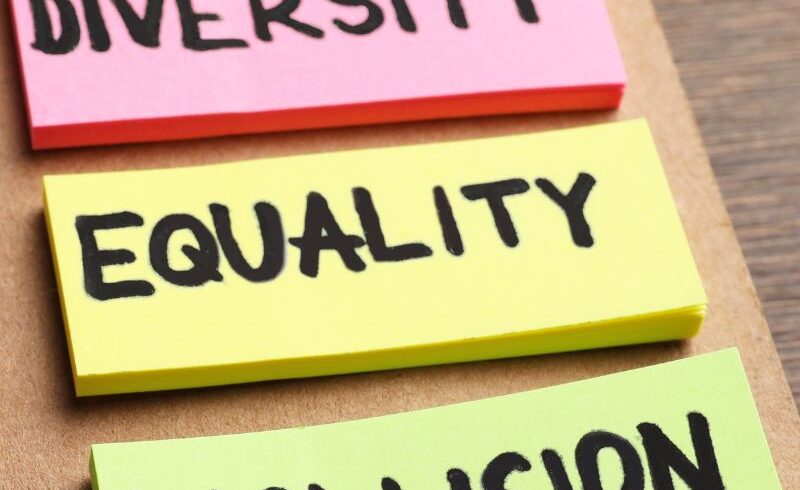Sexual orientation discrimination at work occurs when employees are treated unfairly or harassed due to their sexual orientation. This can include biased hiring practices, unequal pay, exclusion from opportunities, or hostile work environments. Such discrimination is illegal in many places and can have serious consequences for both the victim and the employer.

Understanding how sexual orientation discrimination manifests helps identify behaviors that threaten workplace equality and employee well-being. It also highlights the importance of policies and training to foster an inclusive environment.
Workplaces that fail to address discrimination risk damaging morale, productivity, and reputation. Recognizing the signs and legal protections available is essential for creating fair and respectful work settings.
Understanding Sexual Orientation Discrimination At Work
Sexual orientation discrimination at work involves specific actions and behaviors affecting employees based on their sexual orientation. These actions can be both subtle and overt, and laws address various forms to protect workers.
Definition And Legal Framework
Sexual orientation discrimination occurs when an employee faces unfavorable treatment due to their heterosexuality, homosexuality, bisexuality, or other sexual orientations. This may include hiring, promotion, pay, or termination biases.
In many jurisdictions, laws like the U.S. Equal Employment Opportunity Commission (EEOC) guidelines and the UK Equality Act 2010 explicitly prohibit discrimination based on sexual orientation. These laws define protected classes and outline employer responsibilities to ensure equal treatment.
Employers must provide a workplace free from harassment or discriminatory practices linked to sexual orientation. Failure to comply can result in legal penalties, lawsuits, and mandatory corrective actions.
Types Of Sexual Orientation Discrimination
Discrimination can be direct, such as an employer refusing to hire someone because of their sexual orientation. It can also be indirect, where policies that seem neutral disproportionately affect LGBTQ+ employees.
Other types include harassment (derogatory remarks or hostile work environment) and retaliation (punishing employees who report discrimination or support LGBTQ+ rights).
Workplace discrimination can also take the form of exclusion or denial of benefits, such as healthcare coverage for a same-sex partner or unequal parental leave.
Implicit And Explicit Discrimination
Explicit discrimination is overt and intentional, like openly refusing to promote an individual due to their sexual orientation. It is easier to identify and address legally.
Implicit discrimination involves unconscious bias or systemic barriers that unintentionally disadvantage LGBTQ+ employees. For example, a workplace culture that favors certain social groups may exclude others without explicit intent.
Both types affect employee morale and productivity but require different strategies for recognition and remediation. Awareness trainings and clear anti-discrimination policies help reduce implicit bias.
Legal Protections And Employee Rights
Employees facing discrimination based on sexual orientation have specific rights under both federal and state laws. Understanding these protections is essential for recognizing violations and taking proper action.
Relevant Federal And State Laws
At the federal level, Title VII of the Civil Rights Act of 1964 prohibits employment discrimination based on sex, which the Supreme Court has interpreted to include sexual orientation. The Equal Employment Opportunity Commission (EEOC) enforces these protections.
Many states provide additional safeguards with laws explicitly banning discrimination based on sexual orientation. For example, California’s Fair Employment and Housing Act (FEHA) offers broad protections beyond federal law. Employees should check their state’s labor department or human rights commission for local regulations and resources.
Employers must comply with all applicable laws, including anti-discrimination policies and reasonable accommodation for LGBTQ+ employees.
Filing A Discrimination Complaint
Employees who experience discrimination can file a complaint with the EEOC or corresponding state agency. The process generally includes submitting a charge of discrimination, which initiates an investigation.
There are strict timelines, often 180 days from the incident, so timely action is crucial. The agency may mediate between the employee and employer or pursue legal action if violations are found.
Documentation such as emails, witness statements, and employment records can strengthen a complaint. Employees should keep detailed notes of any discriminatory behavior or retaliation.
Role Of Employment Discrimination Lawyers
Employment discrimination lawyers specialize in advising and representing workers who face workplace bias, including sexual orientation discrimination. They provide guidance on legal rights, documentation, and complaint procedures.
These lawyers, including employee discrimination lawyers and labor discrimination lawyers, can assess the strength of a case and negotiate settlements or represent clients in court. Their expertise helps navigate complex laws and agency requirements.
Hiring an attorney often increases the chances of a favorable outcome, especially in complicated or severe cases. Many offer free initial consultations to evaluate potential claims.
Recognizing And Responding To Discrimination
Discrimination based on sexual orientation often shows in subtle and overt behaviors. Understanding how to spot these actions, record them accurately, and use proper channels for support is critical for addressing workplace discrimination effectively.
Identifying Signs Of Discrimination
Discrimination may appear in hiring, promotions, job assignments, or workplace interactions. Examples include exclusion from meetings, derogatory remarks, or inconsistent application of workplace policies.
It can also show through indirect practices like unequal access to training or unfair performance evaluations. Recognizing these patterns requires attention to repeated behaviors and their impact on the individual’s work experience.
Employees should be alert to both explicit comments and implicit actions that create a hostile or unwelcoming environment. Identifying these signs early helps in taking timely action against discrimination.
Documenting Incidents In The Workplace
Accurate documentation is vital when confronting sexual orientation discrimination. Workers should record dates, times, locations, involved parties, and a clear description of each incident.
Keeping emails, messages, or any written communications that reflect discriminatory conduct is equally important. Consistent records bolster credibility and provide concrete evidence.
Employees may also note any witnesses or coworkers who observed the behavior. This detailed information supports claims filed with employers or legal representatives, including employment discrimination lawyers and labor discrimination lawyers.
Seeking Legal And Organizational Support
Victims of discrimination should report incidents to human resources or designated workplace complaint officers promptly. Companies often have internal procedures for handling discrimination claims.
If internal remedies fail or the issue is severe, consulting with employment discrimination lawyers or labor discrimination lawyers can provide legal guidance. These experts evaluate the case and advise on rights under state and federal laws such as Title VII or state human rights acts.
External agencies like the Equal Employment Opportunity Commission (EEOC) may also be contacted to file formal charges. Knowing where to turn for support strengthens an employee’s position when addressing discrimination.
Promoting Inclusive Work Environments
Creating an inclusive workplace requires clear policies against discrimination and proactive education efforts. Both structural rules and employee awareness contribute to reducing bias and fostering respect.
Implementing Anti-Discrimination Policies
Companies must establish explicit anti-discrimination policies that specifically include sexual orientation. These policies should define prohibited behaviors, detail reporting procedures, and outline consequences for violations.
Policies often include protections against harassment, wrongful termination, or denial of benefits based on sexual orientation. Regular policy reviews ensure they stay aligned with current laws and workplace culture.
Visible communication, such as posting policies in common areas and including them in employee handbooks, reinforces their importance. Leadership commitment to enforcing these policies builds trust and accountability.
Providing Employee Training And Resources
Training sessions help employees understand what constitutes sexual orientation discrimination and how to prevent it. Effective programs include real-world scenarios and focus on respectful communication.
Resources such as support groups, counseling, and diversity committees provide ongoing assistance and promote a sense of belonging. Access to these resources encourages employees to address concerns promptly.
Regular refresher courses maintain awareness and sensitivity over time. Training should be mandatory for all levels, including management, to ensure consistent understanding and application of inclusive practices.






